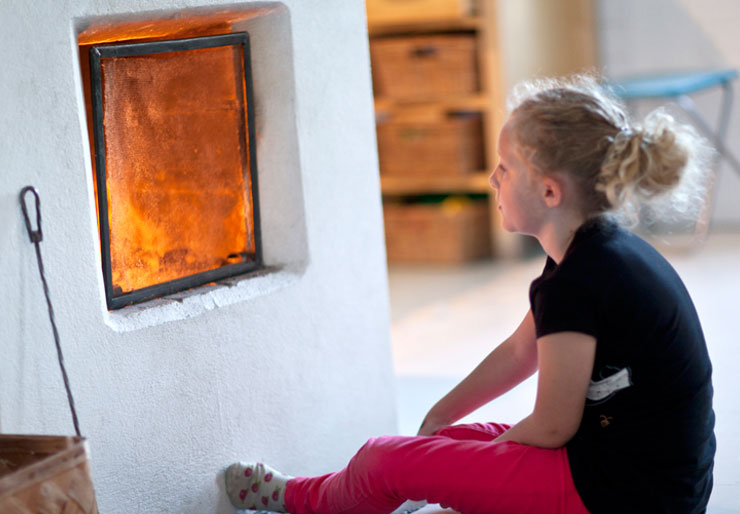
How to avoid chimney fires
If you burn damp wood, creosote deposits will build up in your flue. This can cause chimney fires. Here are some tips on how to use your fireplace safely.
Make sure you have a good air flow
Good combustion requires a lot of air. Open all the air inlets when you light your fire. When the fire is burning well, you can turn down the air controls until it burns with controlled flames.
Not too much wood, no damp wood
If you fill your stove up with wood and turn the air controls down too much, creosote deposits can build up in the chimney. The same thing happens if you burn damp wood. Creosote and tar are deposited in your flue every time you have a fire. These deposits can build up after only a few months of improper burning. Check the user instructions or contact the supplier if you are not sure how your fireplace works.
Maintain your flue
It is your responsibility to keep chimneys and fireplaces maintained. Inspect them for cracks and signs that the flue may be damaged. If you are unsure, contact the fire and chimney sweeping services in your local area.
When will the chimney sweep come?
If you pay municipal chimney sweeping fees to your local authority, you are entitled to have your chimney swept whenever it needs it. The chimney sweep will also visit your home and check flues and fireplaces whenever necessary.
The right way to enjoy a fire:
- Use dry wood and keep a good flow of air going until the fire is burning well.
- Regulate the air flow until the fire is burning with controlled flames.
- Add wood a little at a time so that the fire burns evenly.
- Never use lighter fluid, petrol or other flammable liquids in a fireplace or stove.
Polish version: Jak uniknąć pożaru w kominie (pdf)